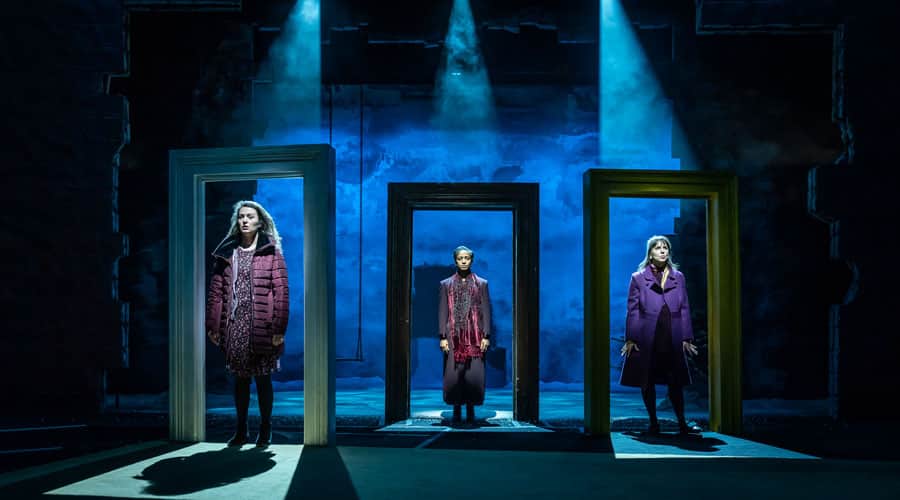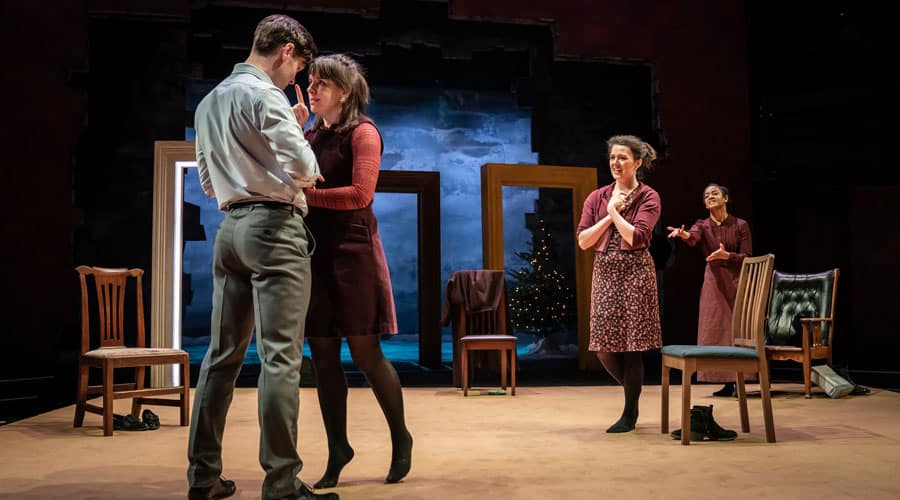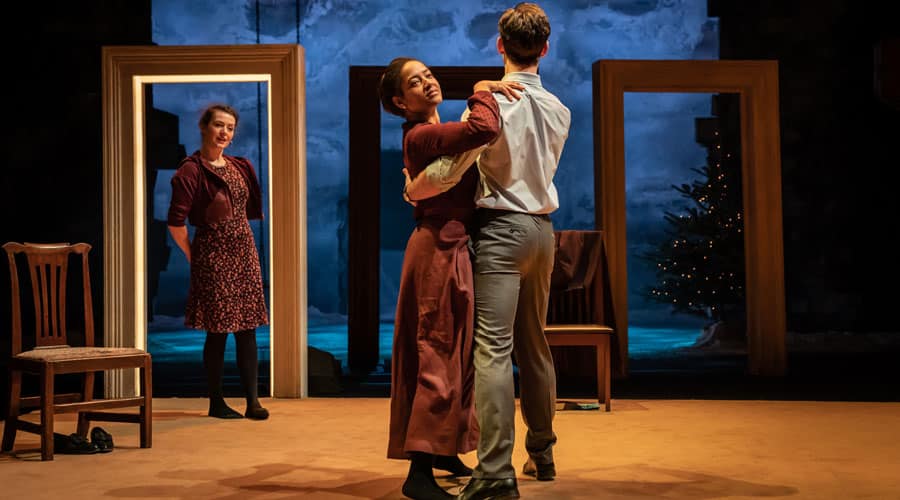Paul T Davies reviews Nora: A Doll’s House, a reworking of the classic play by Stef Smith now playing at the Young Vic

NORA: A Doll’s House.
Young Vic.
11 February 2020
5 Stars
Book Tickets
Ibsen and Chekov continue to battle it out on the London stages, and with Jamie Lloyd’s production of A Doll’s House still to come, audiences are being treated to this radical, stunning reworking of the play by Stef Smith. Whilst the integrity of Ibsen’s structure and themes remain, Smith has created three timelines that each feel like a significant moment for women, 1918, the year women got the vote, 1968, the year the pill became commonplace and abortion legalised, and 2018 and the scale of the #MeToo movement. There are three Nora’s, decades and a century apart, three Christine’s, three Thomas’s (Torvald) and so on. Yet Smith’s writing is crystal clear, and the ensemble does terrific justice to a script that thrums with relevance and power- what has changed for women and what has stayed the same?

Anna Russell-Martin is a strong, modern Nora, who will stand up to her husband, but ultimately is trapped by her support of him following his (mental) illness, Natalie Klamar an excellent Nora 2 from the “Swinging Sixties”, possibly the character closet to the empty airhead, “bubbly blonde” stereotype of the age, using humour to please everyone, and Amaka Okafor closest to Ibsen’s original as 1918 Nora, thrilled at having just cast her vote the first time in history. Luke Norris is outstanding at representing Thomas in the three-time zones, slipping easily between the damaged, sweary man of today, to the 1960s husband who doesn’t understand the way modern society is shifting rapidly away from him, and the buttoned-up Englishman of 1918, shell shocked by war and unable to comprehend why his wife cannot be happy in his perfect home. Mark Arends is a perfect Nathan, threatening Nora with blackmail, hiding his own pain, and forging a new life with Christine, and Zephryn Taitte is a beautiful Daniel all throughout the time shifts, a true friend to Nora facing his own mortality. Smith not only riffs on Ibsen’s feminist slant, she also shows how patriarchy, masculinity and capitalism is stifling and killing men.

Director Elizabeth Freestone has worked superbly with the company to play, to explore, and this segues seamlessly with the excellent Movement direction by EJ Boyle. The Lighting design by Lee Curran dances with the sound design by Michael John McCarthy who has composed atmospheric music, but also knows when silence works best. Smith’s device is so clever – Nora’s secret, that she falsified her father’s name on a document for money to keep the family home together while her husband was ill, is a loan in 1918, a credit card, (new the UK), in 1968, and a payday loan in 2018- that she never needs to overstate her message. She has dived into the river of Ibsen, creating ripples of inventiveness and emotions, and is a wordsmith at the top of her poetic game. Go and see a classic play reinvented for our time, whilst paying homage to a classic from another era.
